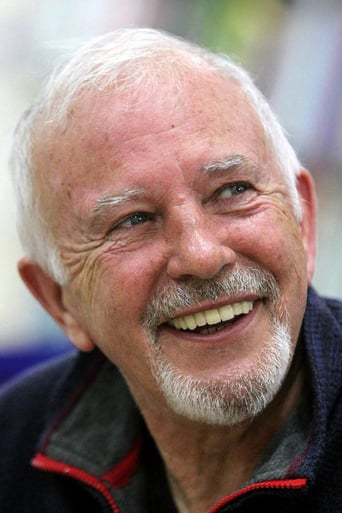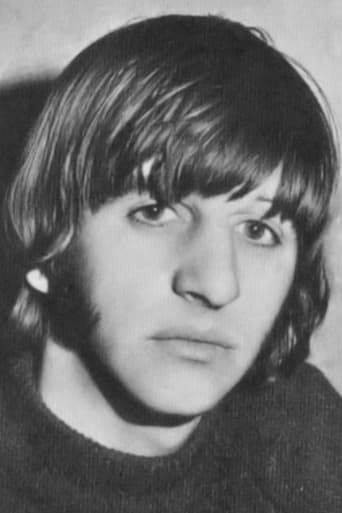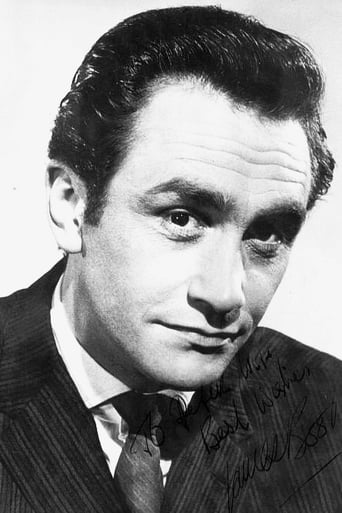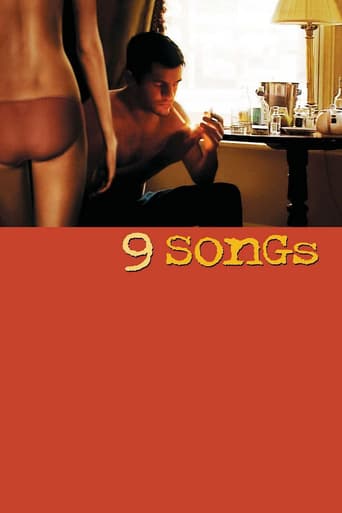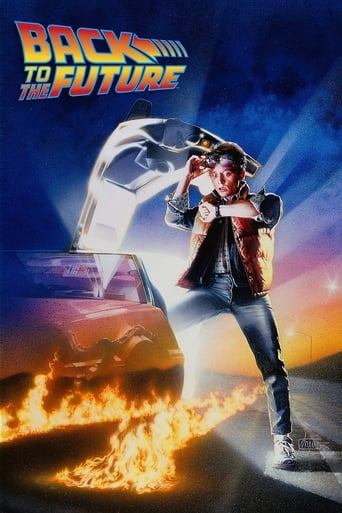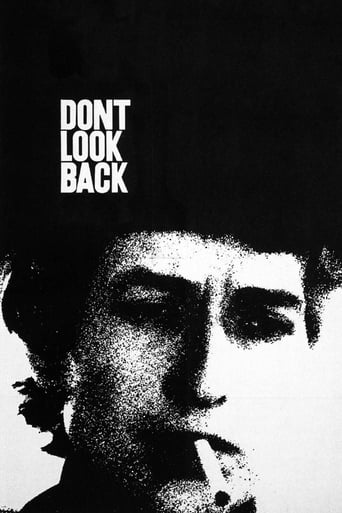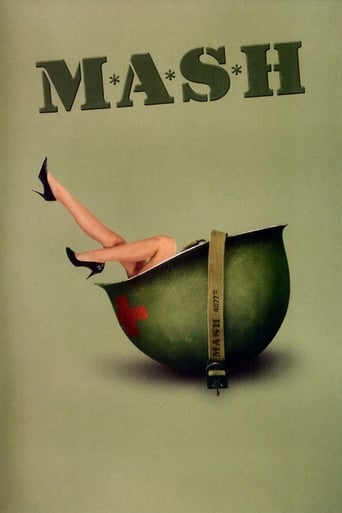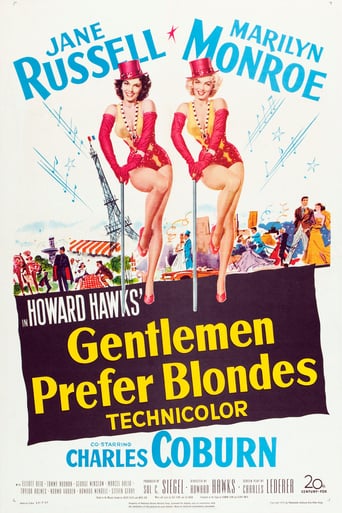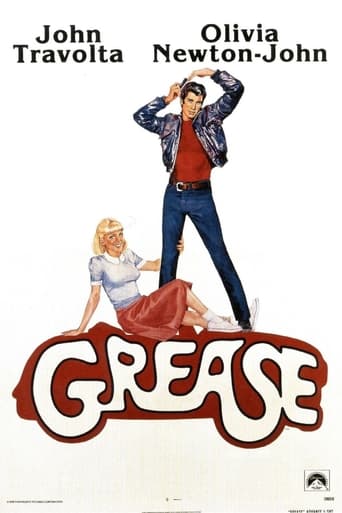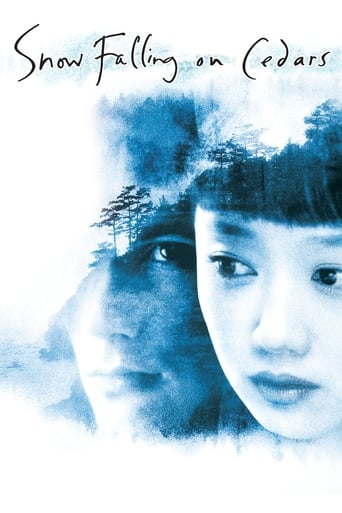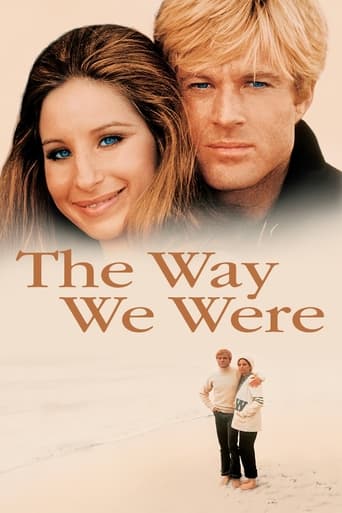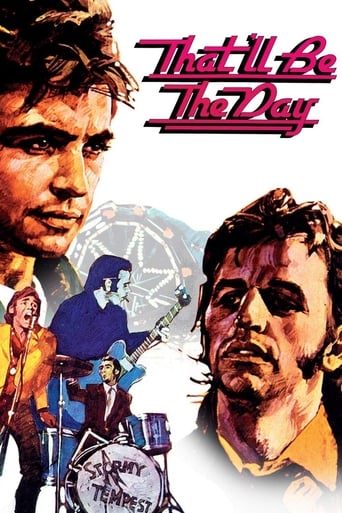
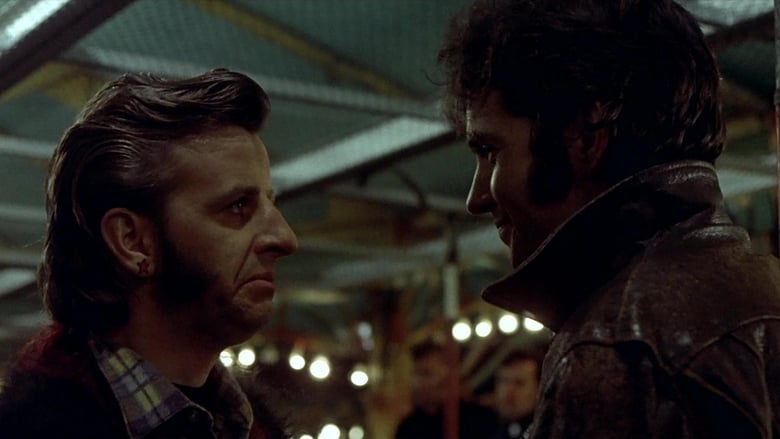
That'll Be The Day (1973)
Britain, 1958. Restless at school and bored with his life, Jim leaves home to take a series of low-level jobs at a seaside amusement park, where he discovers a world of cheap sex and petty crime. But when that world comes to a shockingly brutal end, Jim returns home. As the local music scene explodes, Jim must decide between a life of adult responsibility or a new phenomenon called rock & roll.
Watch Trailer
Cast


Similar titles
Reviews
Although it has its amusing moments, in eneral the plot does not convince.
This film is so real. It treats its characters with so much care and sensitivity.
One of the most extraordinary films you will see this year. Take that as you want.
Through painfully honest and emotional moments, the movie becomes irresistibly relatable
David Essex stars in the first of two films about Jimmy Maclaine, a young man who wants to be a rock star. Here we follow Maclaine as his father comes home from the war, leaves his family and Maclaine grows up, running away from home as a teen to make his future in the world, first by the sea, then at a holiday camp and finally in a carnival. Eventually he returns home to start his own family. Slice of life in late 50's early 60's as rock music was shaking everything up and the post war kids were looking for a way out. I had always heard this was the better of the two Maclaine films (Stardust being the second) but I wasn't really impressed. For what ever reason I couldn't really connect with what was happening on screen. Perhaps I was waiting for something the film isn't, the sequel charts Maclaine's rise and fall as a pop star, so I was waiting for a music film instead of a family drama and character study (come on you have Ringo Starr, Keith Moon and Dave Edmunds in the cast don't you think it'll be a music film?). On some level it made watching the sequel better, but ultimately it wasn't something I need to see again. You may feel differently since the film isn't bad, just one that I didn't connect to.
This British film came out in 1973, the same year as the better-known American film "American Graffiti". There was evidently a fashion in the seventies for looking back at the late fifties and early sixties, even though only about 10-15 years separated the two eras. The qualifying period for nostalgia seems to have got longer in recent years: I cannot imagine a film made today looking back in the same way at 1998 or even 1993.We first meet the main character, Jim MacLaine, as a grammar school boy in the late fifties. Jim's working-class background might today be called "disadvantaged", especially as he comes from a single-parent family, something rarer then than today. We learn how Jim's father walked out on the family when he was a child, but Jim's mother has worked hard to keep the family together, and hopes that her son, who is academically able if lazy, will go to university.Jim, however, has other ideas. A life of study is not for him. On a whim, he drops out of school and runs away from home, not knowing what he wants to do with his life. He finds work on the Isle of Wight as a deckchair attendant, at an amusement arcade and a holiday camp. (The island is known for its holiday resorts, but in the early seventies it was best known for pop festivals, which gained it a reputation as the British Woodstock. This may explain why it was chosen as a setting for a film in which rock music plays an important part). Although Jim dreams of becoming a rock star he does not attempt to realise that dream until the final scene where we see him buying a guitar. (The story of his subsequent musical career is told in the sequel, "Stardust").Jim's main preoccupation during his life on the Island is casual sex; his good looks make him attractive to women, and he has a number of one-night stands. He eventually returns home and gets married, without giving up his womanising ways; on the night before his wedding he cheats on his fiancée, Jeannette, with the girlfriend of his best friend, and best man, Terry. Terry, a university student who prefers trad jazz to rock, represents the steady, middle-class lifestyle which Jim has rejected.I note that one reviewer refers to the film's "wonderfully nostalgic timeline" whereas another calls it "defiantly anti-nostalgic". Both descriptions are, in a way, correct. In one sense the film is anti-nostalgic. In 1973 there were certainly some people who looked back at the Macmillan years as the "never had it so good" era, but the makers of this film were not among them. The look of the film, although it is in colour rather than black-and-white, is deliberately based on the "kitchen sink" realist films of the late fifties and early sixties such as "Woman in a Dressing Gown" or "Saturday Night and Sunday Morning". The emphasis is on drabness and seediness with much of the action taking place in cramped, squalid, badly-furnished and ill-lit houses and lodgings. (Another British film from this period, Richard Fleischer's "10 Rillington Place" from two years earlier, achieves a similar look).In another sense, however, the film does look back nostalgically at the fifties. Those like Terry who hoped that rock would prove no more than a passing fad and that jazz would make a comeback were to be disappointed. By the seventies rock and pop were the dominant element in popular music, especially among the young; jazz had become a minority interest. The film can be seen as a celebration of the early years of rock-and-roll, a time which saw the birth of a new, exuberant youth culture as young people started to assert tastes in music and fashion which were quite different to those of their elders. In that sense at least, the teenagers of the late fifties had "never had it so good". We seem to hear just about every well-known pop single from the period on the soundtrack; the title is, of course, taken from the Buddy Holly song. David Essex plays Jim, and several other musicians, including Ringo Starr, Billy Fury and Keith Moon, have supporting roles.Ringo, like his fellow Beatles, never made a serious attempt at an acting career, but does enough here, as Jim's friend Mike, to suggest that he might have had a good chance of success had he done so. Rosemary Leach is also good as Jim's strong-minded mother. The film as a whole, however, never really works for me, for two reasons. The first is that the plot tends to become dull and repetitive, little more than a catalogue of Jim's sexual conquests. The second reason is the miscasting of the main role. Essex was one of Britain's top pop stars of the seventies, but had little previous acting experience, so seemed an odd choice for a film where he was not required to sing. Moreover, he seems to misunderstand his character, relying heavily on looks and charm and playing Jim as a likable Jack-the-lad, whereas in reality he is a complete bastard.There are similarities between Jim and another heartless cinema Lothario, Michael Caine's Alfie, but at least the latter is never guilty of rape, unlike Jim who forces a schoolgirl to have sex after she has made it clear that she is unwilling. (Even the normally cynical Mike is shocked by this episode). Whereas Alfie finally comes to have doubts about his lifestyle ("What's it all about?"), Jim remains an unrepentant cad to the end, abandoning Jeannette and their young child to take up his new pop career. Caine, a much more accomplished actor, is able to make us understand Alfie, even if we do not exactly like him. Essex is never able to do the same for Jim. 5/10
This film and its sequel "Stardust" are really a thinly-disguised version of John Lennon's rise to stardom with "The Beatles." It stars 1970s British heartthrob David Essex as Jim MacClaine, but this first film in the series is desperately slow and repetitive. It involves Essex going from one dead-end job to another, getting laid again and again and again with various anonymous girls.He goes from dropping out of school and being a deckchair attendant to working in a holiday camp (where he befriends a surprisingly sleazy Ringo Starr) to finally working in a fairground.David Essex has the looks of a movie star, but not the charisma or acting talent. He's a bit wooden at times and he hardly sings at all, which is where his real talent lies.The film does capture the grimness of post-war 1950s Britain well and there is some commentary on class, but the script has no structure whatsoever. It's as aimless as its hero.The sex scenes are quite graphic and there is a morally dubious scene where Essex forces himself on an underage girl (Ringo asks Essex if he's been "gardening" again from the grass stains on his trousers afterwards).There are many cameos from real pop stars. From the aforementioned Ringo Starr, we also have another famous drummer in Keith Moon from "The Who" (he was the music supervisor on the film) and Billy Fury.Many future stars of British television are also visible here in supporting roles. Robert Lindsay, of "My Family" and "Citizen Smith" fame, appears as the best friend of David Essex and he's a constant reminder of what the Essex character could have become if he had gone on to college like him. Karl Howman is also here and in the sequel, he would go on to star in "Brush Strokes" and the series of "Flash" floor-cleaner TV commercials that seems to have become his career of late.The sequel is a big improvement as things actually start happening, although it is still a clichéd rock star's rise-and-fall story with conmen managers, hangers-on and drug abuse thrown in for good measure.I wouldn't recommend wasting your time watching this. Turner Classic Movies described this as a "superb movie." I would strongly disagree with that. I found it extremely boring. It moves at a snail's pace.I was surprised to see the name of renowned producer David Puttnam in the credits. He must have been just learning his trade and probably didn't know what he was doing. He would go on to produce far better movies like the Oscar-winning "The Killing Fields" and "Midnight Express." The film makes several strange references to John Wayne. From Wayne's "That'll Be The Day" line from "The Searchers" (it also inspired a Buddy Holly song) being the title of the film, to name of the David Essex character being taken from Wayne's "Big Jim McClain" movie, albeit with a different spelling.
Set in post austerity Britain of the 1950's,this film brings alive the feeling and the vibe of that time vividly to to the screen.David Essex plays( or underplays )the laconic hero Jim Mclean.Jim's a bright boy but stepping on to the career ladder holds no interest for him.Rock'n'roll has broken through and for Jim there's only one vocation in life.To rock'n'roll.The film perfectly captures the staid,constraint and carefree days of Britain in the 1950's.Along with a great soundtrack Jim makes the break from home and sets out to find his dream.He finds it a tough world out there but eventually finds work in a holiday camp.Here he meets Mike (brilliantly played by Ringo Starr) who's been there, seen it,done it or so he claims.Mike introduces Jim to the ways of the adult world,so therefore throwing of the constrictions of the social strait-jacket that was '50's Britain.The strong point of the film is it's realism.Why have I never heard of it's directors' other work? One of the best British films of the 1970's;this is a must see for film fans and rock'n'roll fans alike.It's sequel 'Stardust' which charts Jims rise to fame should not be mentioned in the same breath.


